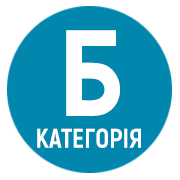METHODOLOGY OF LEGAL LEGISLATION IN THE ACTIVITIES OF PUBLIC AUTHORITIES AND MANAGEMENT
DOI:
https://doi.org/10.32689/2522-4603-2019-02/58-33-39Abstract
In article it is determined that one of the elements of lawmaking is the legal technique, the observance of the rules of which improves the efficiency of adoption of legal acts. The Institute of Legal Engineering is the object of study of many scientists from Ukraine and beyond. Positive overseas experience is the preparation of special drafting manuals in different countries. The opinion of scientists on the definition of legal technique is given. The author’s above definition is suggested. The need to distinguish between “legal technique” and “legal technology” is emphasized, since the latter are procedural in nature. The types of legal techniques are named according to the basic criterion of their determination. The main criterion for determining the types of legal technology is the stages of creation and implementation of legal acts. The following types of legal technique are named: lawmaking, which includes legislative technique, the technique of creating legal acts by the executive authorities and local self-government; technique of publication of legal acts; technique of systematization of legal acts; technique of interpretation of legal acts; law enforcement techniques, which include judicial, lawyer, investigative, prosecutorial, notarial, interrogation techniques and recording of interrogation results in protocols. Investigating the scientific works of scientists whose object of study is legal technique, it is concluded that, in general, the scientific literature defines: the rules of legal technology; means and methods of legal technique; elements of legal technology; legal requirements. It is proposed to distinguish the basic requirements for the technique of creating legal acts: structural; logical; linguistic; procedural. Within each group, it is suggested to identify specific rules to be followed in lawmaking. The necessity of defining and fixing the above requirements in the Law of Ukraine “On Regulatory Acts”, the necessity of which was stated repeatedly, was stated. It was argued that administrative lawmaking was no less responsible than legislative lawmaking. Therefore, the methodology remains common to both areas of lawmaking: legislative and administrative. The methodology of legal lawmaking in the activities of public authorities and management is defined as a set of certain theoretical principles, logical techniques, methods of activity in the process of creating legal acts. We propose methods that can be used to study the basic rules of legal technology, to combine into the following two groups: 1) theoretical (metaphysical, method of analysis, synthesis, induction and deduction); 2) empirical (systemic, functional, linguistic, sociological, comparative, technical, method of description and legal experiment).
References
Bogdanovskaia I. The legislative bodies in the law-making process // North Atlantic Treaty Organization. URL: https://www.nato.int/acad/fellow/97-99/bogdanovskaia.pdf (дата звернення: 12.12.2019).
Шутак І. Д. Розвиток теорії та практики юридичної техніки. Харків : Право, 2018. 368 с.
Онищук І. І. Техніка юридичного письма в нормативно-правових актах: автореф. дис. … канд. юрид. наук: 12.00.01. Львів, 2012. 20 с.
Манько Д. Г. Юридична техніка й технології. Херсон: Грінь Д. С., 2014. 192 с.
Красницька А. В. Процесуальні акти кримінального судочинства: юридична техніка, шляхи удосконалення : автореф. дис. … канд. юрид. наук: 12.00.09. Київ, 2008. 19 с.
Дзюбенко О. Л. Юридична техніка відомчої нормотворчості в Україні: автореф. дис. … канд. юрид. наук: 12.00.01. Київ, 2010. 16 с.
Пригара Л. І. Юридична техніка актів правозастосування: автореф. дис. … канд. юрид. наук: 12.00.01. Київ, 2008. 19 с.
Костенко М., Малько О. Доктринальні основи юридичної техніки: порівняльний аналіз в Європейських правових межах.
Varga Csaba. Doctrine and technique in law // Internationales Rechtsinformatik Symposion / IRIS 2004. Kolloquium Philipps (Rechtstheorie). (Salzburg, 26.–28. Februar 2004). URL: https://www.google.com/url?sa=t&rct=j&q=&esrc=s&source=web&cd=&ved=2ahUKEwjErqeajv_qAhVpoosKHbCmBi4QFjAAegQIARAB&url=https%3A%2F%2Fwww.univie.ac.at%2FRI%2FIRIS2004%2FArbeitspapierln%2FPublikationsfreigabe%2FCsaba_Phil%2FCsaba_Phil.doc&usg=AOvVaw1_SBjUb07nNtXoryT2EqVG (дата звернення 01.10.2019).
Stijn Debaene, Raf van Kuyck and Bea Van. Buggenhout Legislative Technique as Basis of a Legislative Drafting System // Foundation for Legal Knowledge Based Systems (JURIX). URL: http://jurix.nl/pdf/j99-03.pdf (дата звернення 01.10.2019).
Aneta Jakubiak-Mirończuk.The european model of lawmaking-assumption and policies. Polish review of international and european law. 2014. Vol. 3, Issue 1–2, p. 29–48.
Legislation and good governance. The role of legislative drafting manuals. OECD, 2018. 41 p. // Organisation for Economic Co-operation and Development (OECD). URL: http://www.oecd.org/mena/governance/legislation-and-good-governance-insightsfor-the-egyptian-manual-for-legislative-drafting.pdf (дата звернення 12.10.2019)
Пивоваров В. М. Мова права як один із головних засобів юридичної техніки // Юридична техніка: доктринальні основи та проблеми викладання: тези доповідей та повідомлень учасників науково-практичної конференції, 30 вересня – 1 жовтня 2015 р. Харків: Нац. Юрид. Ун-т ім. Ярослава Мудрого, 2015. 178 с.
Кельман М. С. Юридична наука: проблеми методології: монографія. Тернопіль: ТзОВ “Терно-граф”, 2011. 492 с.





